Slug repellent plants – 8 plants that slugs won't eat
Discover the best slug repellent plants to prevent this pest from ruining your garden

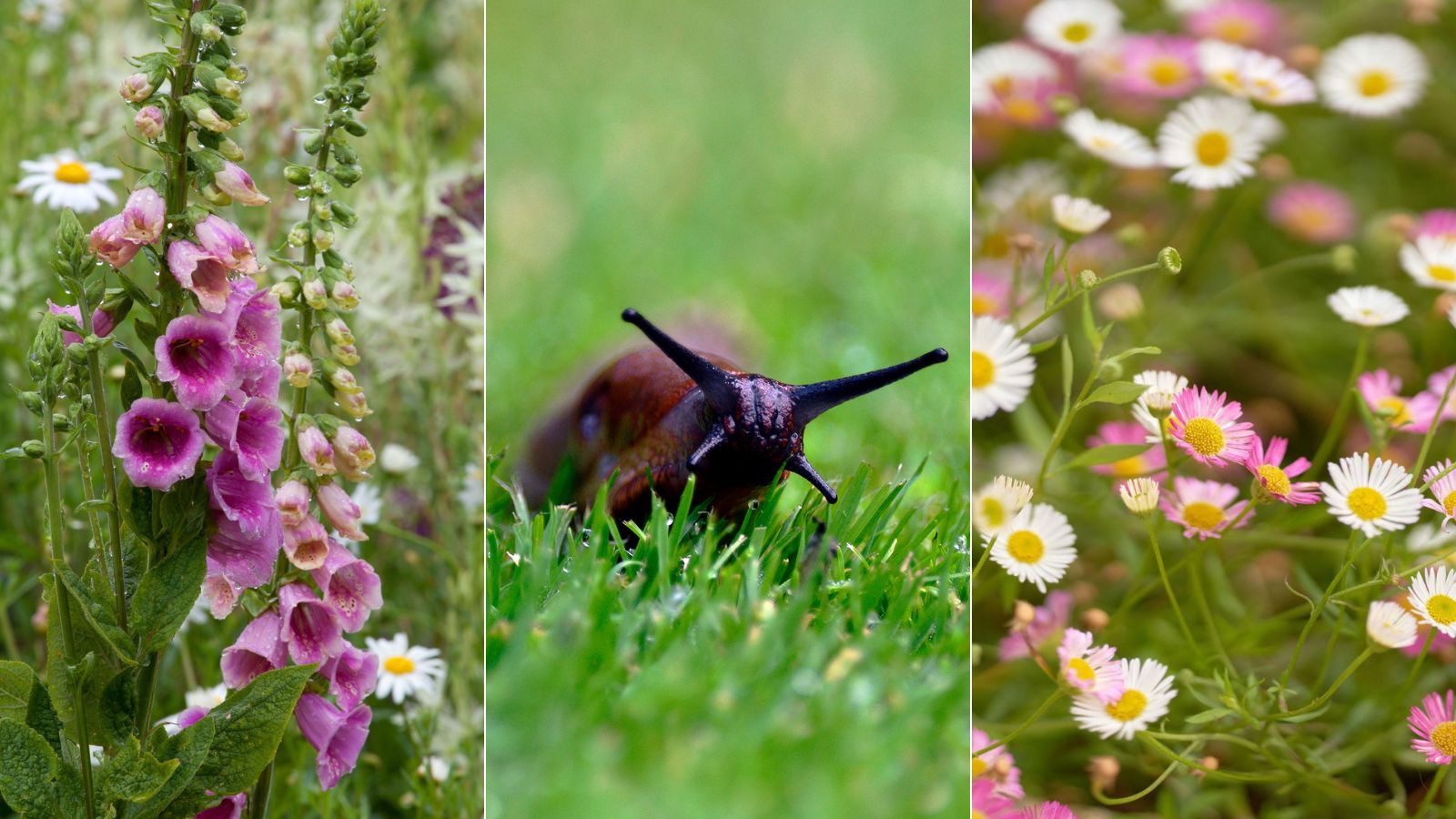
If you're looking for slug repellent plants then you've come to the right place. Here we round up the best plants – flowers, crops and shrubs – that will not fall prey to these slippery garden visitors.
Slugs are one of a gardener's worst nightmares. Not only can they quickly decimate your plants but they are surprisingly resilient creatures – this is where slug repellent plants come to the rescue. Slug repellent plants can be used to create a barrier to protect more vulnerable crops or can just be enjoyed in their own right.
If your backyard is inundated with slugs, then you might need to learn how to get rid of slugs as well as adopting some of these slug control methods.
Slug repellent plants
Unlike mosquito repellent plants, which are planted to keep mosquitos away from you, and trap plants, which are put in as a sacrifice for slugs and snails, slug repellent plants are a little different. Like deer resistant plants or snake repellent plants, they actively keep slugs away from your borders simply because they don't like them.
'Some plants are less vulnerable to attack than others. These include plants which are strongly aromatic, spiny, colored red or have tough or hairy leaves. Also, vulnerable plants can be protected by a barrier of resistant plants,' recommend the experts from the Gloucestershire Wildlife Trust.
Or you can simply grow these plants safe in the knowledge that you won't have to wage war in your garden.
1. Ferns
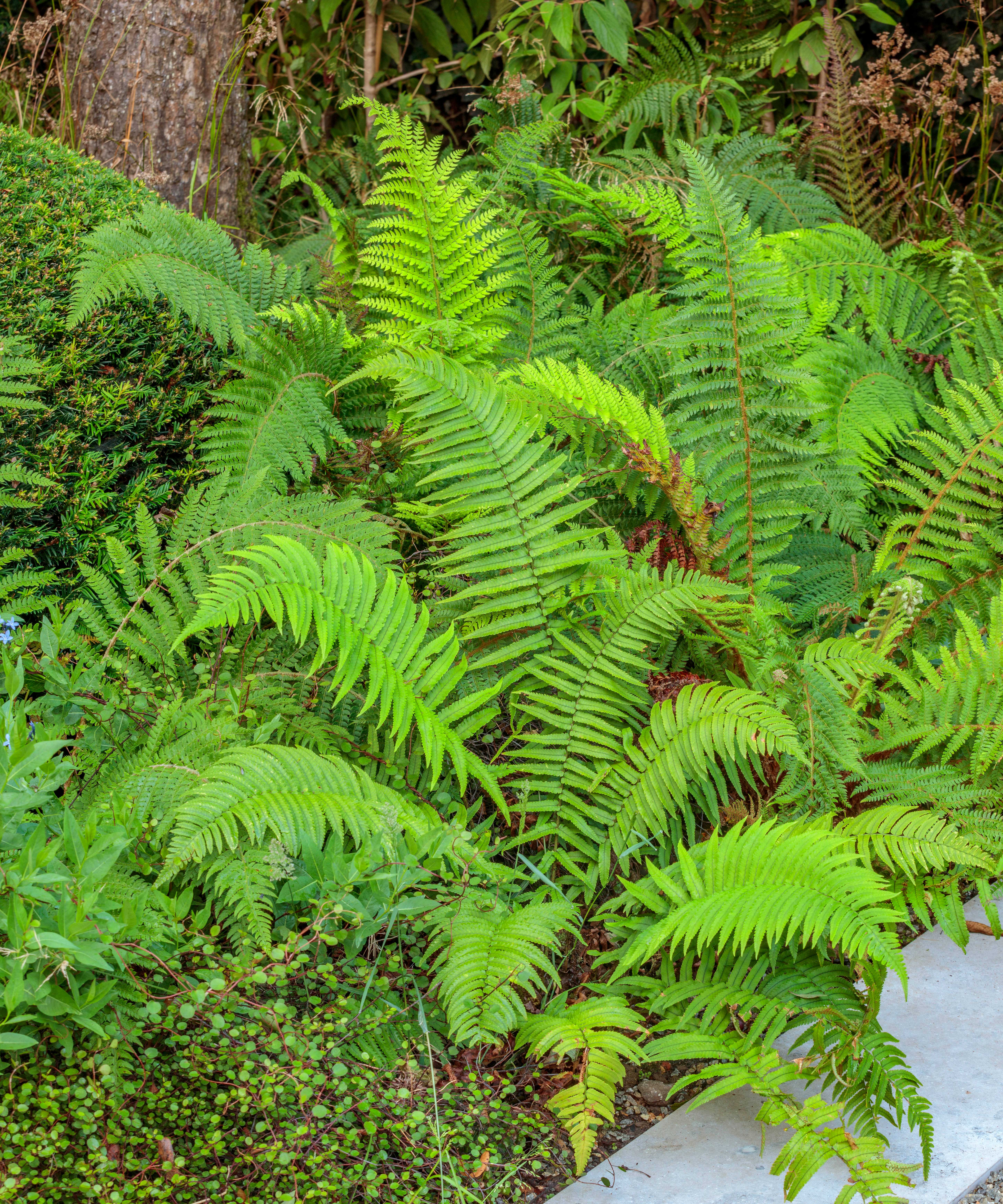
One of the most hardy of perennials, ferns are characterized by their thin yet durable leaves. It is these leaves that make ferns one of the most slug repellent plants, as slugs find them nearly impossible to eat.
Design expertise in your inbox – from inspiring decorating ideas and beautiful celebrity homes to practical gardening advice and shopping round-ups.
They are also a great choice to add alongside other shade plants or those for a north-facing garden. Edge or encircle borders with them, putting more delicate plants that slugs love to eat near them.
2. Lavender
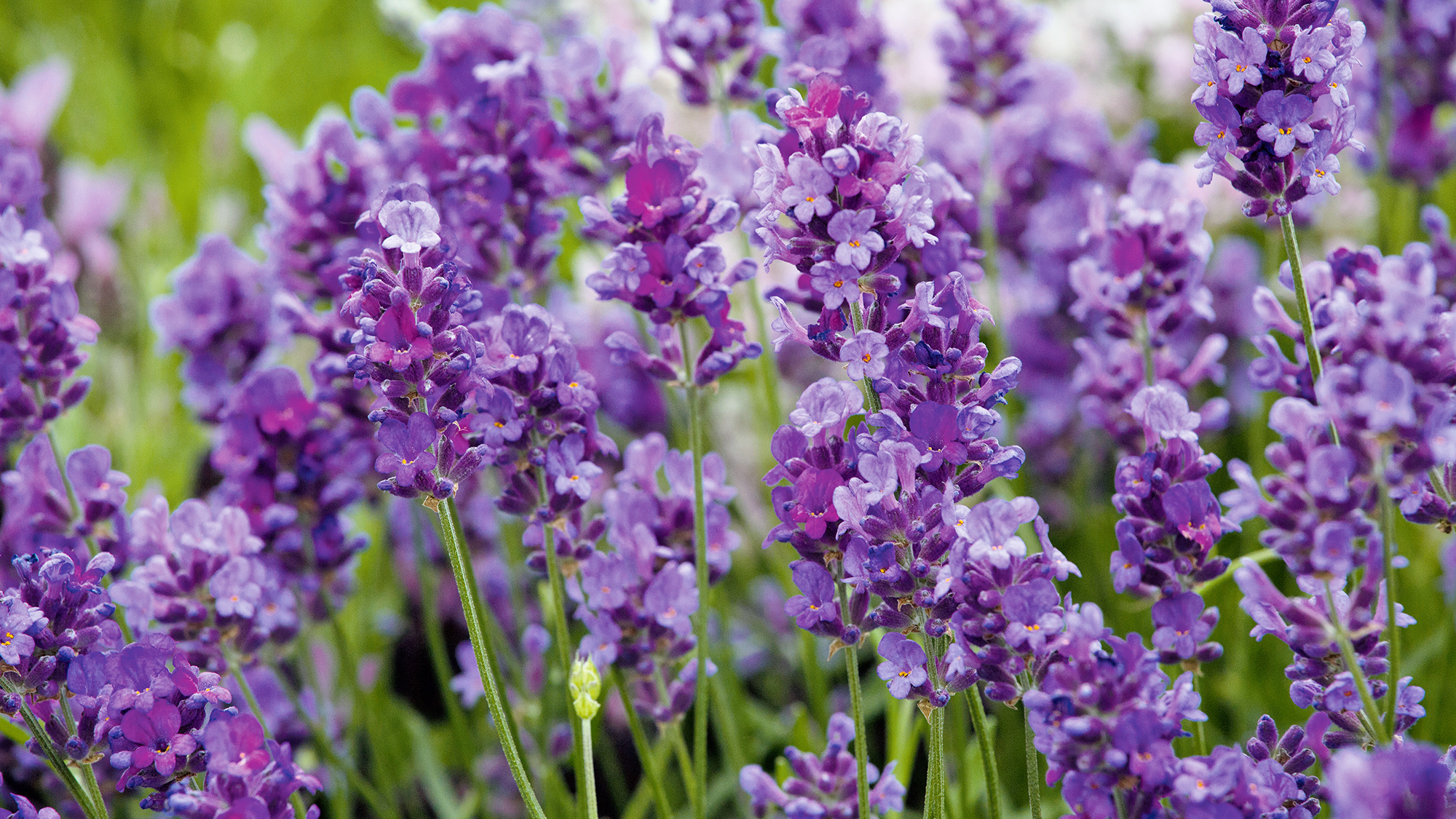
With its beautiful purple foliage and sweet perfume, lavender is a beloved addition to your backyard. However, the quality that makes us fall in love with this popular plant, is also the reason why they are great for repelling slugs. Molluscs purposefully avoid plants that emit a strong scent, making lavender a great border plant. Framing a path or garden bed with lavender bushes will help to contain your planting and prevent slugs from discovering your more vulnerable plants.
Lavender is also a very versatile addition to the garden, suiting every style from cottage garden ideas to Mediterranean garden ideas. If you're planning on adding this shrub to your plot, then it is vital that you know how to grow lavender and how to prune lavender in order to keep it beautiful, dense and flower-packed.
3. Rosemary
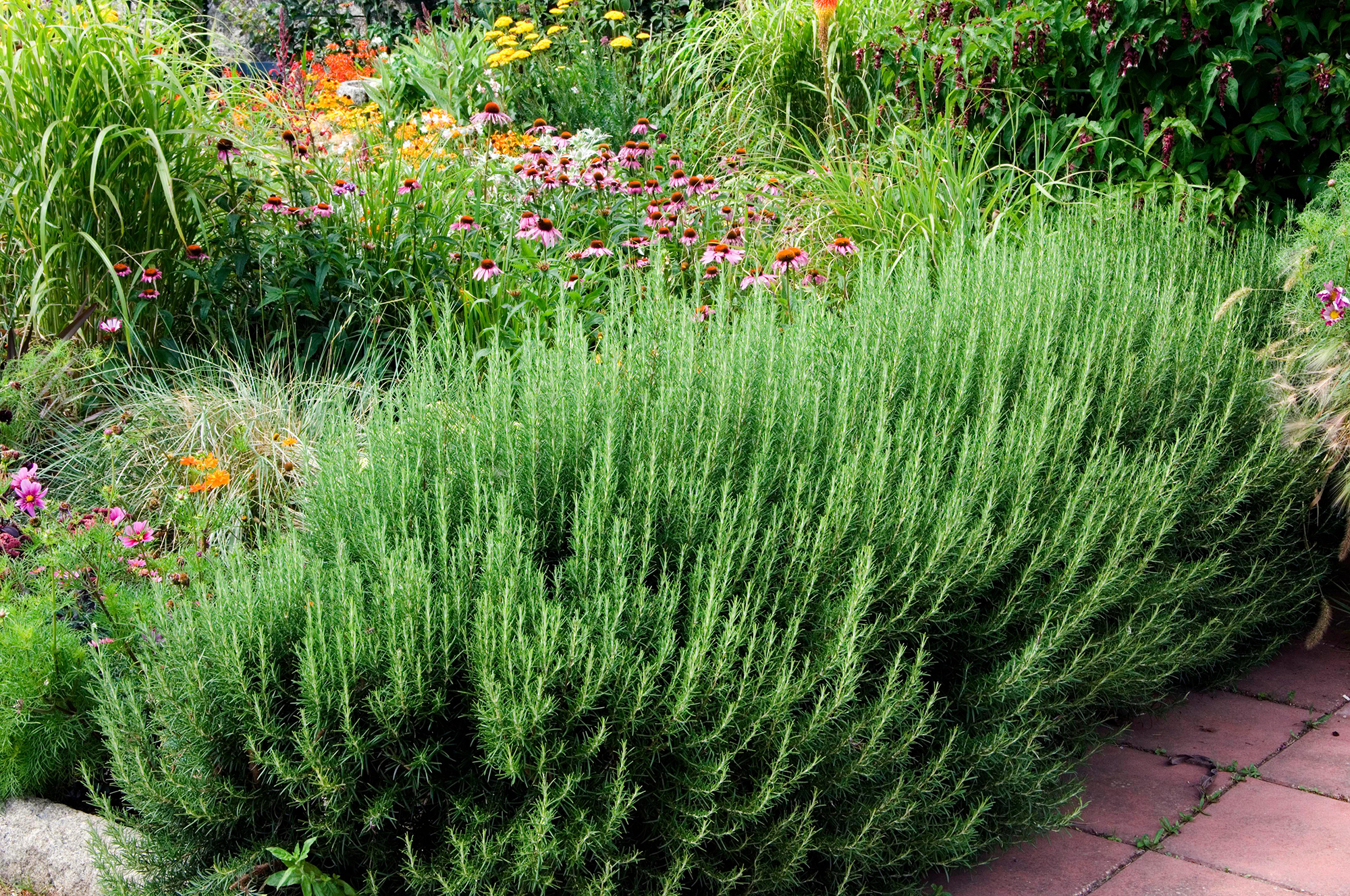
Rosemary repels slugs in much the same way as lavender and is a valuable addition to herb garden ideas. Highly fragrant with dense but narrow leaves, slugs will not want to pass by or over a rosemary bush.
Adding rosemary or other aromatic herbs will help to protect the other more vulnerable plants in your herb garden, such as basil, or vegetable patch, such as salad leaves, spinach and lettuce.
If you're considering adding rosemary to your garden, then be sure you know how to grow rosemary and when to prune rosemary to ensure your slug repellent plants don't become woody, thin or misshapen.
4. Saxifrage
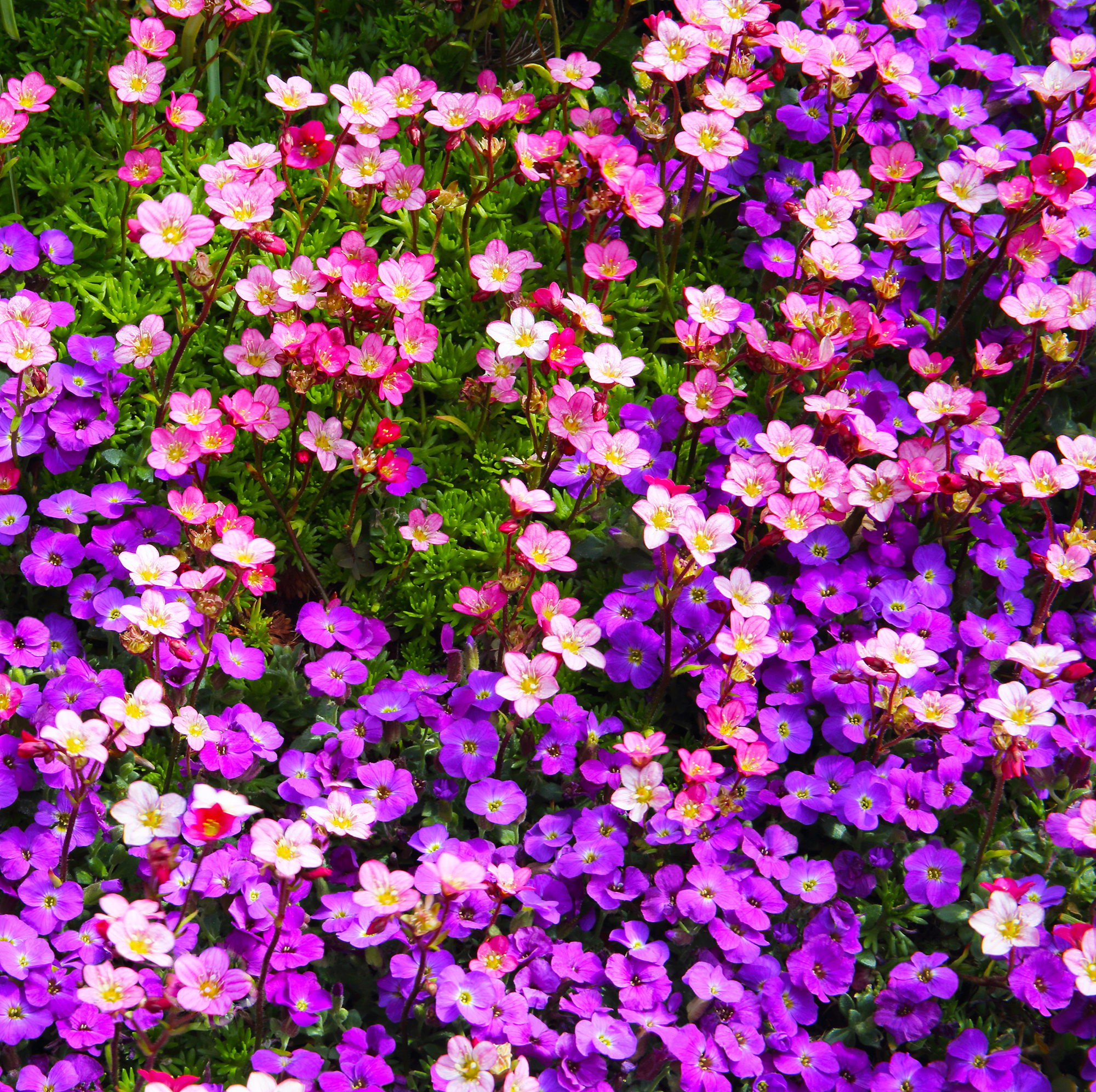
A beautiful choice of groundcover, saxifrage is a stunning addition to gravel garden ideas, rock gardens or to your flower bed ideas. Underplanting vulnerable plants such as dahlias, asters and petunias with saxifrage will help to protect them from decimation. The RHS specifically recommends the variety Saxifraga × urbium to deter slugs.
Here, pink saxifrage has been paired with purple aubreita for a pretty ground cover.
5. Mexican fleabane
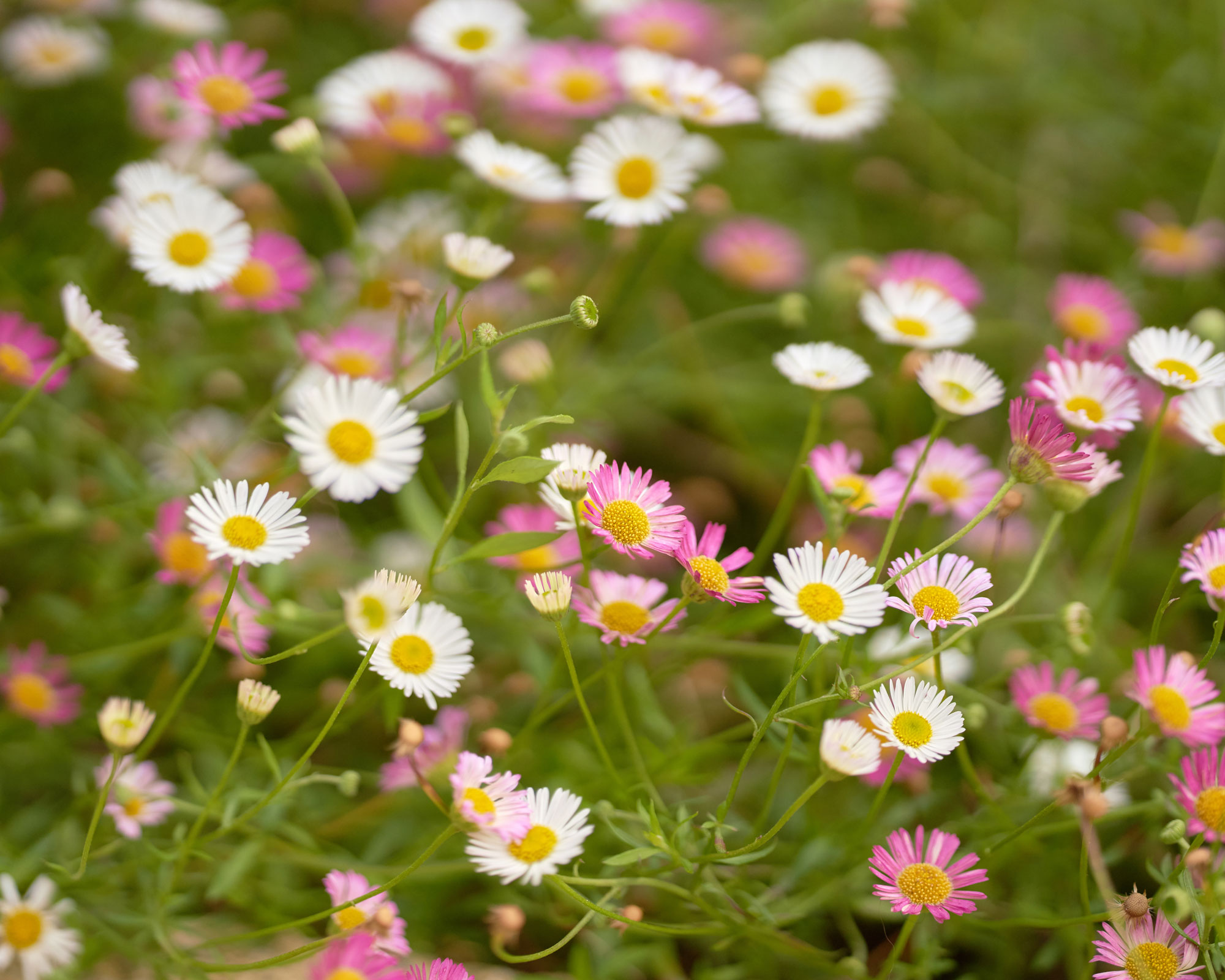
With its feathery leaves, Mexican fleabane, also known as erigeron, is a hardy choice that proves unpopular with slugs.
'Erigeron will self-seed into crevices, walls and steps. It prefers full sun in well-drained soil that doesn’t dry out in summer. Deadhead to encourage further flowering and cut back in fall,' advises H&G garden expert Leigh Clapp.
6. Foxgloves
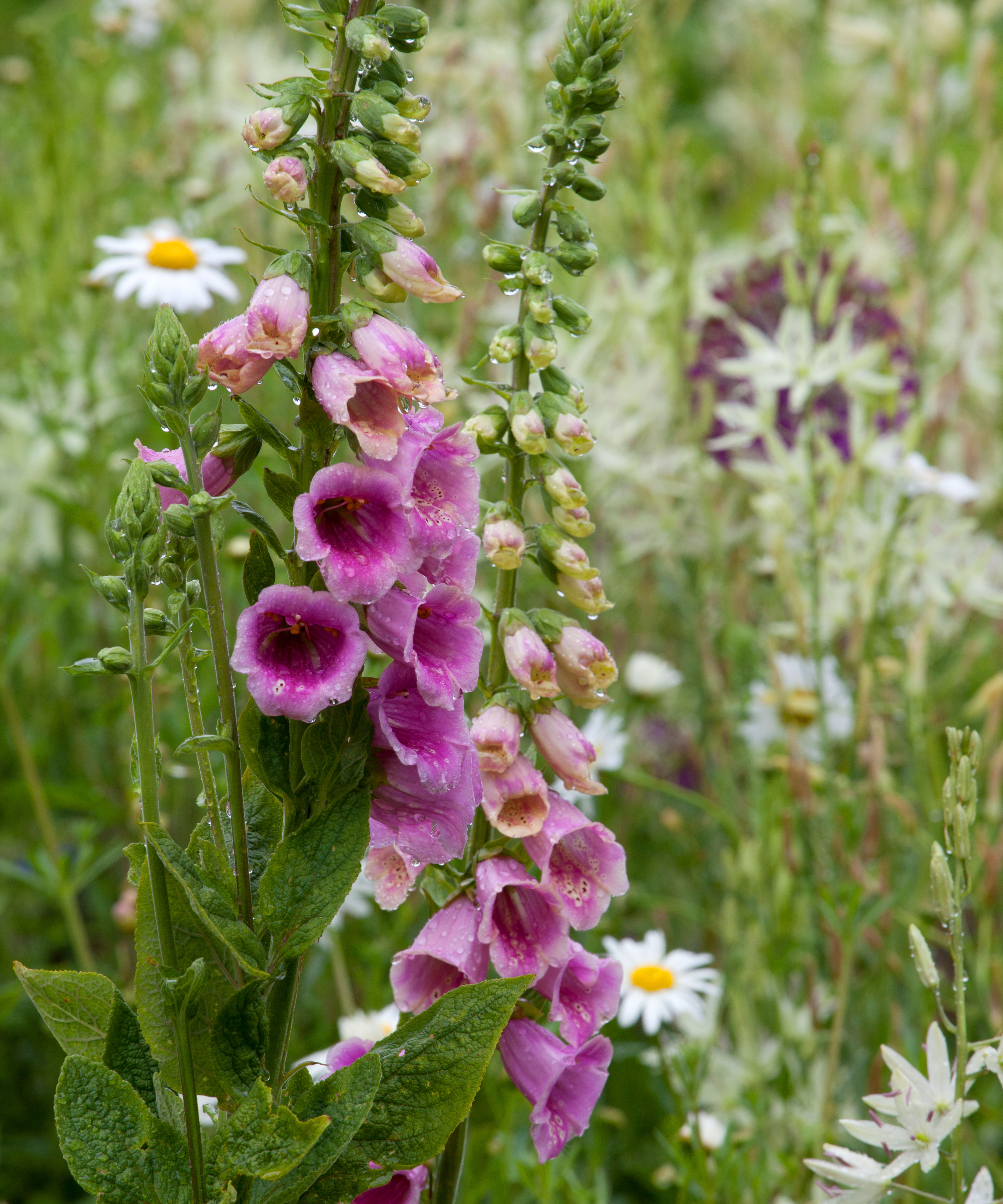
Foxgloves are renowned for being poisonous. Their leaves contain digoxin, a chemical that is sometimes used to treat heart conditions, which proves fatal to slugs (and humans if not prescribed). Therefore, slugs automatically avoid this beautiful bloom, making it one of the prettiest slug repellent plants.
Interestingly, foxgloves are also a great addition to your wildlife garden ideas. As well as deterring slugs, planting foxgloves is a great way to attract bees and other pollinators to your garden.
7. Onions and chives
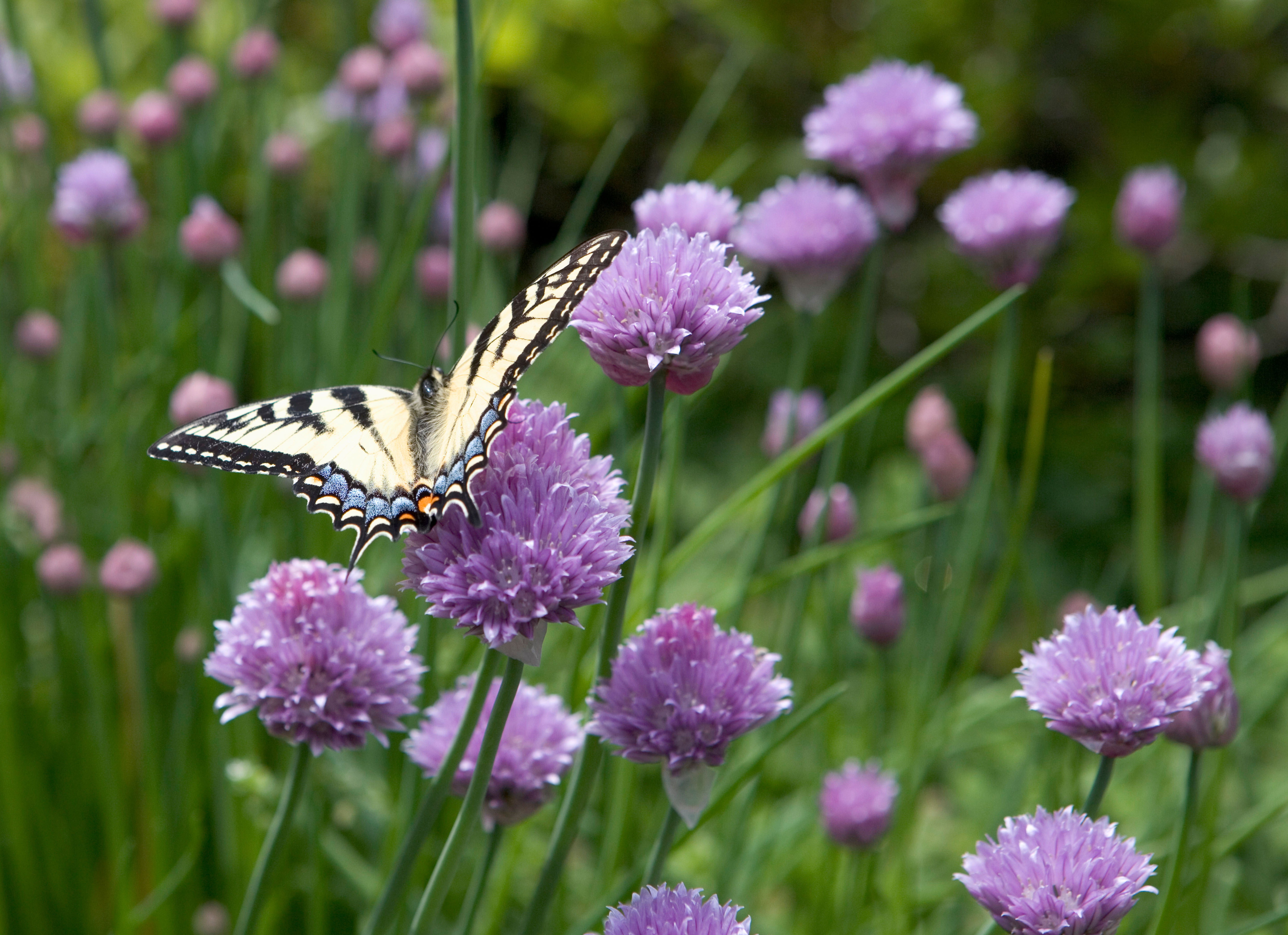
Growing onions, alliums, garlic, leeks and chives are all part of the Allium family. All of these plants produce the chemical allicin which is toxic to slugs if consumed. As a result, they are a great choice of barrier plant when planted in vegetable gardens or flower borders.
8. Chinese silver grass
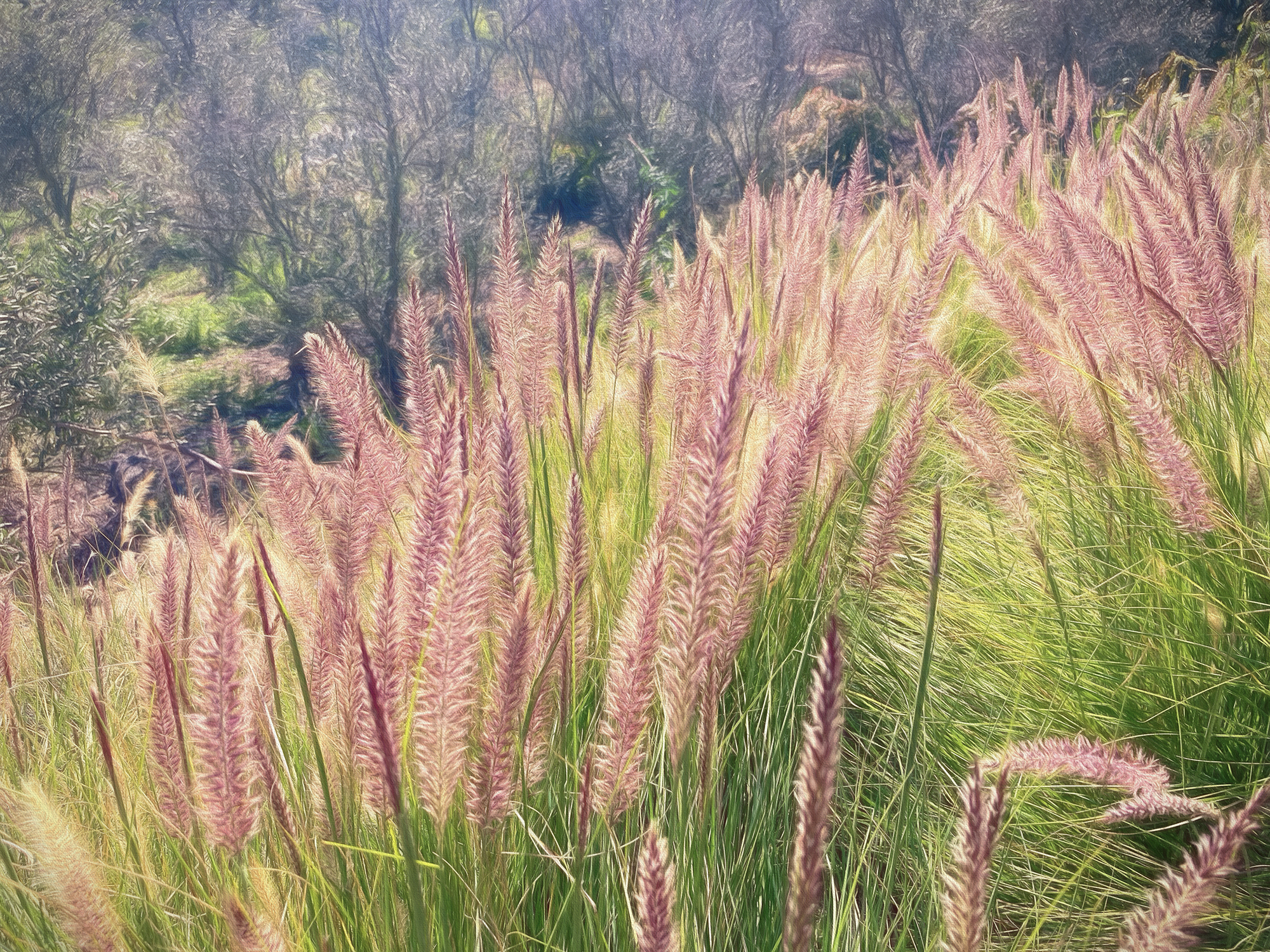
In general, slugs will not eat grasses – take your lawn as a prime example. Therefore, they can make a great addition to your borders, bringing height, texture and color.
Chinese silver grass, also known as Miscanthus sinensis, brings with its rich green leaves and stems paired with pink plumes that fade to a soft silver as the season progresses. Learn how to grow ornamental grasses, like Chinese silver grass, with our expert guide.
Which plants do slugs hate?
Slugs hate the following plants:
- Ferns
- Foxgloves
- Onions
- Chives
- Alliums
- Garlic
- Leeks
- Mexican fleabane
- Daisies
- Lavender
- Rosemary
What plants kill slugs?
Foxgloves and euphorbias both have toxic leaves that will kill slugs if consumed, while members of the allium family – think onions, chives, leeks and alliums – will also kill slugs as they contain a chemical called allicin.

Having graduated with a first class degree in English Literature, Holly started her career as a features writer and sub-editor at Period Living magazine, Homes & Gardens' sister title. Working on Period Living brought with it insight into the complexities of owning and caring for period homes, from interior decorating through to choosing the right windows and the challenges of extending. This has led to a passion for traditional interiors, particularly the country-look. Writing for the Homes & Gardens website as a content editor, alongside regular features for Period Living and Country Homes & Interiors magazines, has enabled her to broaden her writing to incorporate her interests in gardening, wildlife and nature.